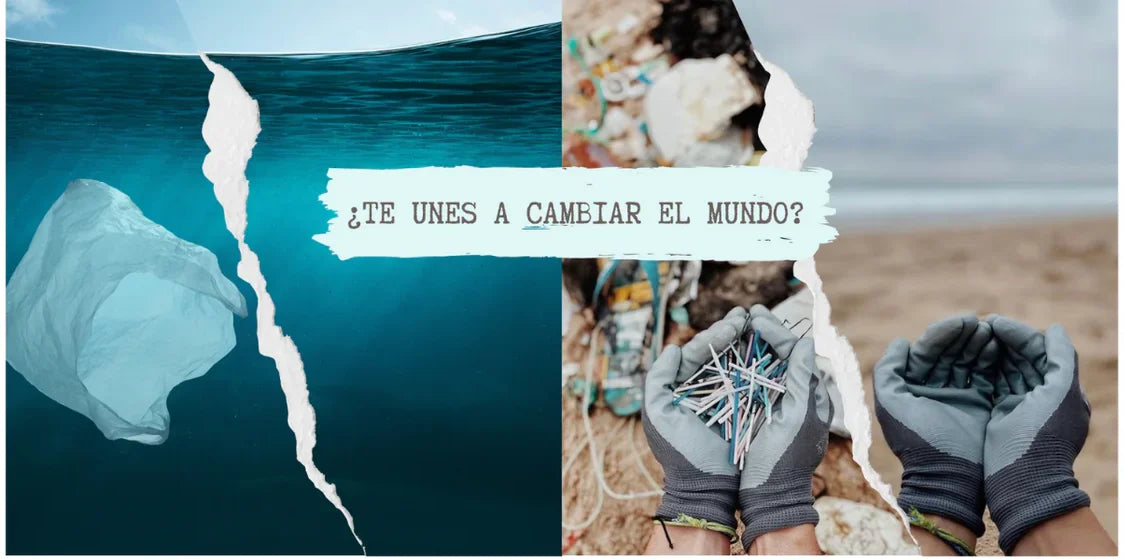
GOTS Certificate: What it is and what it is for 2024
Currently, one of the main concerns of consumers is sustainability and the environmental impact of their purchases. Increasingly, people are looking for products that are not only high quality but also respect the environment and human rights. In the fashion world, the GOTS Certificate, or Global Organic Textile Standard, has established itself as one of the most reliable seals that clothing can have. If you are interested in learning more about ethical fashion or sustainable fashion, keep reading.
What is a GOTS certificate?
The GOTS certificate is an international certification granted to textile products that meet rigorous standards related to organic material, the environment, and labor conditions. This standard, established in 2006, has become the most important benchmark for the sustainable textile industry, covering everything from the production of organic fibers to the final manufacturing of products.
GOTS is based on social and ecological criteria that guarantee ethical treatment both for the environment and for the workers involved in the production process. By obtaining this certificate, brands demonstrate their commitment to sustainable and responsible practices at all levels of their supply chain.
Companies wishing to obtain the GOTS certificate must meet a series of requirements, from using organic fibers, eliminating toxic and hazardous chemicals, to respecting labor rights and complying with environmental and social criteria. If you want to learn more, read this article on how to reduce your pollution and environmental impact.

What is the GOTS certificate for?
The GOTS certificate plays a fundamental role in the verification of the traceability process of the fabric, that is, tracking from the origin of the fiber, through cultivation, dyeing, finishing, packaging, labeling, to the marketing and distribution of textile products. Products with this certification are made in a sustainable and responsible way, which is essential for the protection of the planet and the preservation of natural resources. The GOTS certification offers multiple benefits for both consumers and brands. On one hand, it promotes transparency, allowing consumers to be better informed about the origin of the products they purchase, helping them make more conscious decisions. Certified companies disclose relevant information about their production process and suppliers, thus fostering a more responsible fashion industry.
Additionally, by having an internationally recognized seal, brands can demonstrate their commitment to sustainability, which translates into increased trust from consumers. For these companies, being GOTS certified also provides access to new markets, especially a growing segment of customers interested in sustainable products. On the other hand, the GOTS certification includes social standards that protect workers' rights, contributing to the improvement of labor conditions within the textile industry.
It is also important to highlight that GOTS establishes clear standards for resource use and waste management, resulting in a minimization of environmental impact during production, thereby reducing the ecological footprint of the textile industry. The use of organic fibers not only supports environmental preservation but also helps reduce the carbon footprint related to the fashion industry.
What does the GOTS certification guarantee?
The GOTS certification guarantees a series of important aspects in textile production that address both environmental and social concerns:
- Organic origin: Ensures that at least 70% of the fibers come from organic crops, meaning free from pesticides and synthetic fertilizers, which is important to protect the health of workers, biodiversity, and the environment.
- Sustainable production process: Criteria are established for responsible water management, renewable energy, waste treatment, and emission reduction throughout the production process.
- Labor conditions: Respect for workers' rights is required, prohibiting forced labor and child labor, and guaranteeing safe and fair working conditions.
- Prohibition of harmful substances: GOTS prohibits the use of harmful chemicals in production and throughout the manufacturing process, ensuring the final product is safe for consumers. Certified companies must comply with safety standards, ensuring textile products do not contain toxic or hazardous substances that could endanger consumer health.
- Transparency in the supply chain: Companies must maintain clear records of their entire production chain, from the farm to the store, improving product traceability.
Advantages of the GOTS certificate
Choosing products that carry the GOTS certificate brings a series of advantages for both brands and consumers. Some of them are:
Credibility
GOTS is recognized worldwide as a reference standard for organic textile products, which adds credibility to the brands that carry it.
Increased consumer loyalty
Consumers are increasingly loyal to brands that demonstrate a genuine commitment to sustainability, and the GOTS certificate is a hallmark in this regard.
Market differentiation
Brands with GOTS certification can position themselves as leaders in sustainability, differentiating themselves in a saturated market.
Reduction of legal risks
Complying with the environmental and labor regulations required by GOTS can help companies avoid legal problems and sanctions related to rights violations.
Participation in sustainability initiatives
Certified brands can participate in international networks and receive support in initiatives that seek to promote more responsible textile production.
Who should have a GOTS certificate?
The GOTS certificate is relevant for various entities within the textile industry, ranging from cotton and other fiber producers to fashion brands and distributors. First, those who cultivate organic fibers must obtain certification to ensure their products meet the strict standards required by this regulation. Likewise, textile manufacturers who process or produce goods such as yarns, fabrics, and garments are required to have this certification to ensure responsible and sustainable production. Fashion brands seeking to stand out in the market and attract increasingly sustainability-conscious consumers should also opt for the GOTS certificate, as it allows them to offer products that meet high environmental and social standards. Finally, retailers and distributors handling textile products can benefit by collaborating with certified companies, as this not only reinforces their own commitment to sustainability but also gives them a competitive advantage in a market that increasingly values environmental responsibility. Together, obtaining the GOTS certificate becomes a crucial step for all these actors who want to contribute to a more sustainable future within the textile industry.

GOTS certification process
The process to obtain GOTS certification involves several steps that ensure both companies and their products comply with the certificate’s rigorous standards. These steps include:
-
Self-assessment: companies must review their internal processes and practices to ensure they meet the criteria established by GOTS.
-
Selection of a certifying body: it is necessary to choose an accredited entity that evaluates the conformity of processes and products.
-
Compliance audit: the selected body will conduct a thorough audit, reviewing documentation and visiting production facilities to ensure everything complies with regulations.
-
Issuance of the certificate: if the company meets the established criteria, it will be granted the GOTS certificate, which is valid for a determined period (usually one year).
-
Continuous monitoring: companies must undergo periodic audits to ensure they maintain the required standards over time.
How to recognize products with GOTS certificates?
To ensure you are buying properly certified products, it is important to know how to identify them. Products bearing the GOTS certificate usually have a label that includes:
The GOTS logo
This logo is usually accompanied by the registration number of the certifying company, which allows verification of the certification’s authenticity.
Content declarations
Labels also inform about the product’s content, specifying the percentage of certified ecological fibers in the garment. Products with 95% certified organic fibers are classified as “organic.” Likewise, those with a minimum of 70% organic fibers carry the label “made with organic material.”
Details about the certification process
Some labels include additional information about the process and standards followed for production.
It is advisable to shop at stores and brands committed to sustainability, where you are more likely to find garments with this certification. Fitplanet is a high-quality Spanish sustainable clothing store, and its garments are made with recycled materials from the Mediterranean Sea. It offers sustainable clothing for women, from women’s yoga sets to garments for any other sport.
Conclusion
The GOTS Certificate has become a fundamental pillar in the pursuit of a more sustainable and responsible textile industry. By choosing products with this certification, you are not only selecting quality and design but also participating in a movement toward more conscious and responsible consumption. At our store Fitplanet, we are committed to offering you clothing that not only makes you look good but also respects the planet and the people who inhabit it. So, when selecting your next garments, remember that every choice counts and that with the GOTS Certificate, you can be sure your purchase is backed by solid values of sustainability and ethics.



